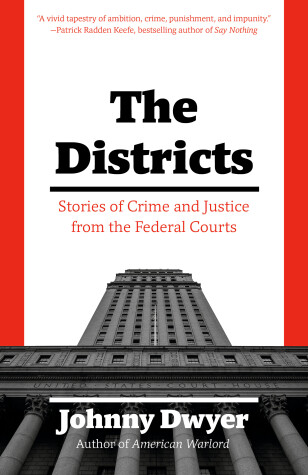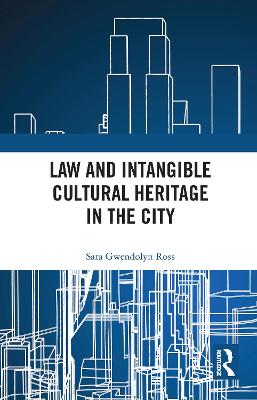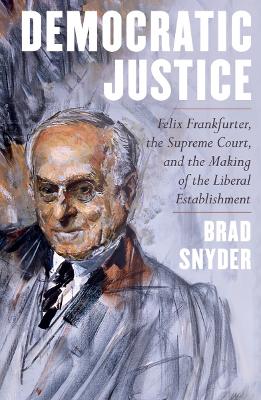Guide to the Code of conduct (House of Lords Papers, Session 2009-10, 81)
The National Security Strategy (House of Lords Papers, Session 2009-10, 115i)
Canadian Federalism and Its Future
The time is ripe to revisit Canada's past and redress its historical wrongs. Yet in our urgency to imagine roads to reconciliation with Indigenous peoples, it is important to keep in sight the many other forms of diversity that Canadian federalism has historically been designed to accommodate or could also reflect more effectively. Canadian Federalism and Its Future brings together international experts to assess four fundamental institutions: bicameralism, the judiciary as arbiter of the federa...
Organized Interests and Self-regulation (FEEM Studies in Economics)
This collected volume studies the role of organized interests in collective decision-making and the emergence of self-regulation. In democratic settings, organized interests play a role at the legislative stage, affecting the outcome through lobbying activity. While pressure groups and lobbying are a traditional topic in public choice theory, the incentives to maintain private rules and enforcement through self-regulation is a less developed research area in political economy. The book provides...
African Foreign Policies (Routledge Studies in African Politics and International Relations)
This book explores, at a time when several powers have become serious players on the continent, aspects of African agency, past and present, by African writers on foreign policy, representative of geography, language and state size. In the past, African foreign policy has largely been considered within the context of reactions to the international or global "external factor". This groundbreaking book, however, looks at how foreign policy has been crafted and used in response not just to externa...
On how our sense of balance has defined us as a nation and will safeguard our future. In the years that John Howard served in the national parliament he came to understand the special character of Australia; to appreciate its strengths and weaknesses; and most importantly to respect the sense of balance in the formulation of public policy that has long defined us as a nation and made Australia an attractive destination for people from across the world. In this book he explores this balance, its...
American Public Opinion and the Modern Supreme Court, 1930-2020
by Thomas R. Marshall
Johnny Dwyer examines the New York crimes we’ve seen in the news, in movies, and on television—drug trafficking, organized crime, terrorism, corruption, and white-collar crime—while weaving in the nuances that rarely make it into headlines. “Told in the kind of pointillist detail that can only come from years of hanging around the courthouse and doing old-school shoe-leather reporting.” —Patrick Radden Keefe, author of Say Nothing The Rosenbergs, Rudy Giuliani, Bernie Madoff, James Comey, J...
With disappearing music venues, and arts and culture communities at constant risk of displacement in our urban centers, the preservation of intangible cultural heritage is of growing concern to global cities. This book addresses the role and protection of intangible cultural heritage in the urban context. Using the methodology of Urban Legal Anthropology, the author provides an ethnographic account of the civic effort of Toronto to become a Music City from 2014-18 in the context of redevelopme...
The conventional wisdom about Felix Frankfurter—Harvard law professor and Supreme Court justice—is that he struggled to fill the seat once held by Oliver Wendell Holmes. Scholars have portrayed Frankfurter as a judicial failure, a liberal lawyer turned conservative justice, and the Warren Court’s principal villain. And yet none of these characterizations rings true. A pro-government, pro-civil rights liberal who rejected shifting political labels, Frankfurter advocated for judicial restraint—he...
Code of Federal Regulations, Title 34 Education 300-399, Revised as of July 1, 2020 (Code of Federal Regulations, Title 34 Education)
Title 34 presents regulations governing education related activities and programs. General provisions, civil rights, elementary and secondary education, special education and rehabilitative services, vocational and adult education, bilingual education and minority languages affairs, postsecondary education, educational research and improvement, literacy, and disability are addressed in separate chapters. Additions and revisions to this section of the code are posted annually by July. Publication...
Title 41 sets forth practices of wage determination, health and safety standards, regulations governing purchase from people who are blind or severely disabled, and employment practices expected of federal contractors. The system for property management covers inventories, management and use of records, acquisition, construction and alteration of public buildings. Procurement of products, management and use of telecommunications resources, management of means of transportation and travel expendi...
Title 22 presents regulations governing the Department of State, the International Development Cooperation Agency, the Peace Corps, and other federal agencies regarding foreign relations. It includes regulations pertaining to Foreign Service personnel, visas, nationality and passports, diplomatic privileges and immunities, and international agreements. Additions and revisions to this section of the code are posted annually by April. Publication follows within six months.
Title 26 presents regulations, procedures, and practices that govern income tax, estate and gift taxes, employment taxes, and miscellaneous excise taxes as set forth by the Internal Revenue Service. Additions and revisions to this section of the code are posted annually by April. Publication follows within six months.
Title 26 presents regulations, procedures, and practices that govern income tax, estate and gift taxes, employment taxes, and miscellaneous excise taxes as set forth by the Internal Revenue Service. Additions and revisions to this section of the code are posted annually by April. Publication follows within six months.








